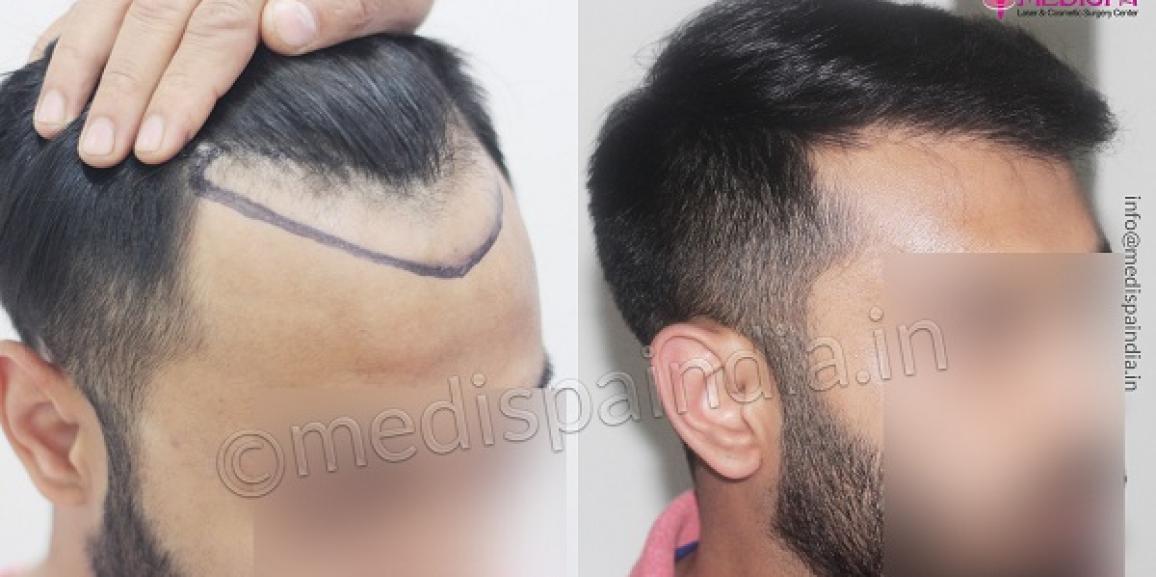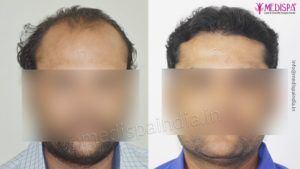
In Mumbai, cosmetic surgery is a hugely lucrative profession that is practised everywhere. A select few reputable cosmetic surgery facilities also treat famous people. As with other cosmetic operations, hair transplant in Mumbai is easily accessible due to the procedure’s strong demand there. The higher demand may be caused by the large number of struggling to successful performers who are wanting to follow their aspirations in Mumbai, as well as by the city’s higher prevalence of hair loss owing to the city’s harsh atmosphere and demanding lifestyle.
But both the price of living and hair transplant cost in Mumbai is fairly exorbitant. Even the subpar clinics in Mumbai provide the surgery at an exorbitant price. However, you might not get an advanced hair transplant at subpar clinics, which would unquestionably affect the results.
Not just Indian patients who suffer from hair loss travel Jaipur and Delhi to have their hair transplants because those cities are known for having the best hair restoration business. As who doesn’t desire a quality hair transplant at the best price, Jaipur and Delhi are now attracting the attention of celebrities for hair transplant tourism.
Celebrities love Medispa Hair Transplant Clinic, and we frequently treat actors from up-and-coming to well-known. We are committed to giving every patient the best results possible, and we provide them hairlines that are incredibly beautiful and seem completely natural. We provide top-notch facilities, cutting-edge technology, and world-class hair transplants performed by Dr. Suneet Soni, a surgeon who is well-known all over the world.
What should we know before undergoing hair transplant?
However, you should think about the following important factors before deciding on hair transplant as a therapeutic option. Let’s learn a few facts that you may use as models as you think through the process.
- Recognise whether or not you are a candidate for a hair transplant: Although a hair transplant is an optional treatment, not every patient will be able to have one. You should speak with a hair transplant surgeon to determine whether the procedure is feasible; following a thorough examination, the candidate status is confirmed. The donor and the bald area are both thoroughly assessed, and any relevant medical history is looked up. If you are a good candidate for a hair transplant, you will undoubtedly profit from it.
- Your transplanted hair can be treated the same as your natural hair: A hair transplant is a restorative surgery that involves choosing the most high-quality hair grafts from your body’s donor locations, extracting them, and then implanting them at the recipient site. By this point, it should be evident that the hair transplant surgery uses your own hair follicles for transplanting, which require minimal upkeep. The hair follicles use a similar hair development cycle and follow a similar pattern of hair growth. Therefore, you may treat your transplanted hair as your own as it is your own, but coming from a different place.
- Your transplanted hair won’t fall out: When harvesting and transplanting hair, it is important to remember that only certain hair roots are being taken out and used. Yes, only DHT resistant hair follicles that lack androgenic receptors and are hence unaffected by androgens are hand-selected. These permanent hair roots obey the characteristics of their root and not the skin if they are transplanted at the bald spot. DHT-resistant hair roots will not fall out after transplant, resulting in results that are permanent and last a lifetime.
- Your scalp won’t need to be cut for a hair transplant: A prevalent misconception among the general public is that a hair transplant might have an adverse effect on the brain. The truth is very different from this since a hair transplant is a minimally invasive operation that only affects the surface layer of skin on the scalp, far from the brain. The brain is highly protected since it is covered in a strong skull bone and has several layers on top of it. Therefore, it is not conceivable at all if you are concerned that a hair transplant surgeon will make a brain incision.
- Hair transplant side effects are few and short-lived: You might be concerned about potential consequences from a hair transplant. So let’s be quite clear: Following the surgery, you won’t experience any form of negative effects. You could notice a scar that is practically undetectable, but it is simple to conceal behind hair growth. Additionally, there are only a few modest short-term adverse effects that you could have, such as little swelling, slight soreness, or slight itching. These effects won’t bother you too much and will go away on their own a few days or even a week after the operation. Therefore, you won’t have to worry about any negative side effects or inconveniences following the treatment.





